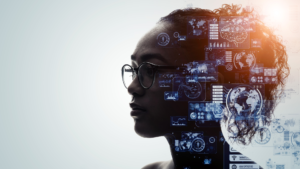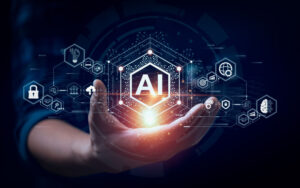Artificial Intelligence (AI) has witnessed remarkable progress in recent years, exerting a transformative influence on personal assistants and, consequently, on our daily lives. The evolution of these digital aides has been marked by a shift from basic, predefined functions to intelligent, context-aware interactions. The earliest personal assistants were limited in scope, serving as glorified task managers with minimal adaptability. Users were often left grappling with rigid command structures and a lack of intuitive understanding. Today, an assistant can help you with everything from scheduling a treatment at a luxury spa in Toronto to giving you some useful tips for everyday life.
However, the integration of natural language processing (NLP) and machine learning has been a game-changer. Modern personal assistants can now interpret language nuances, discern context, and provide more natural and responsive interactions. This shift from mere task execution to conversational AI has elevated the user experience, making personal assistants feel more like virtual companions rather than rigid tools. The ongoing advancements in AI algorithms continue to refine this aspect, ensuring that personal assistants evolve to understand user intent with increasing accuracy.
Moreover, AI’s impact on personal assistants extends beyond individual devices, as these digital aides have become central to our interconnected ecosystems. The integration of personal assistants into smart homes is a testament to this evolution. Users can seamlessly control various aspects of their living spaces through voice commands, creating a more intuitive and convenient home environment. The collaboration between personal assistants and smart home technologies exemplifies how AI can enhance not only individual devices but also entire systems, contributing to the broader concept of the Internet of Things (IoT). One of the important systems that is built into smart homes is the access control system from Philadelphia that makes you feel safe in your home.
The Rise of Virtual Companions: Emotional Intelligence in AI

Beyond their functional capabilities, personal assistants have evolved to embody a semblance of emotional intelligence. This marks a paradigm shift in AI development, as digital companions aim to understand not just the explicit content of user queries but also the emotional undertones. Sentiment analysis algorithms enable personal assistants to gauge user moods and respond empathetically, fostering a sense of connection.
The emergence of virtual companions is not merely a technological feat but a reflection of society’s growing desire for meaningful digital interactions. As personal assistants become attuned to emotional nuances, they offer more than just information or task completion—they provide companionship. Whether it’s a friendly exchange to lift spirits or a comforting presence during challenging moments, emotionally intelligent personal assistants contribute to a more holistic and personalized digital experience. A personal assistant becomes an excellent guide on your travels with the help of useful e-sim services while helping you stay in touch with loved ones.
Furthermore, the integration of emotional intelligence in personal assistants reflects a broader trend in AI development. It underscores the importance of designing technologies that understand and respond to the diverse emotional states of users. This shift towards emotionally aware AI has implications beyond personal assistants, influencing the development of applications across various domains, including mental health support, education, and social interaction. By helping an individual overcome their problems through helpful online courses, a personal assistant works to improve that person’s mental health.
The Integration of AI into Smart Homes: Seamless Automation
The integration of AI into smart homes represents a significant stride toward creating intelligent and responsive living spaces. Personal assistants, acting as central hubs for home automation, enable users to control and optimize various aspects of their environment effortlessly. From adjusting temperature settings to managing lighting and security systems, the scope of personal assistants has expanded to cover the entire spectrum of smart home functionalities. Integrating it into your wardrobe can help you create outfit combinations for different occasions such as great combat clothing for some outdoor exercise with company.
The synergy between AI and smart homes goes beyond convenience; it contributes to energy efficiency and security. Machine learning algorithms empower personal assistants to learn user preferences over time, allowing for the optimization of automated processes based on individual habits. This adaptability ensures that the AI-driven smart home experience aligns seamlessly with the unique needs and lifestyles of users, promoting a more sustainable and personalized approach to home management.
As smart home technologies continue to evolve, the role of personal assistants is likely to become even more integral. The prospect of an interconnected ecosystem, where AI seamlessly orchestrates various devices and systems, holds the promise of creating truly intelligent and responsive living environments. The ongoing development of AI in the context of smart homes exemplifies the potential for technology to enhance not only individual experiences but also the overall efficiency and sustainability of our living spaces. The personal assistant also helps in the areas of construction, so church architects can get the right measurements and realize exceptional buildings according to your wishes.
Challenges and Considerations: Ethical Implications of AI
While the potential benefits of AI in personal assistants are vast, the ethical considerations become increasingly nuanced. The reliance on vast datasets and machine learning algorithms poses challenges related to the transparency and accountability of decision-making processes. The black-box nature of some AI systems raises concerns about biases and unintended consequences, demanding a more comprehensive understanding of the ethical dimensions involved. However, as you delve deeper into these ethical issues, you can try milk chocolate edibles with a cup of tea.
As personal assistants become more deeply intertwined with our lives, there’s a growing need to address issues of consent and data ownership. Users must have a clear understanding of how their data is utilized and the implications of AI-driven decisions on their daily experiences. Striking a balance between personalization and privacy is a delicate task, requiring ongoing efforts to establish robust ethical guidelines that protect user rights while fostering innovation.
Moreover, the ethical considerations extend to the potential societal impacts of widespread AI adoption. The displacement of certain job functions by automation, often facilitated by personal assistants, prompts discussions about the ethical responsibility of industries and governments in managing the repercussions on the workforce. As AI continues to evolve, a proactive approach to mitigating negative societal impacts becomes crucial, emphasizing the need for collaborative efforts among policymakers, technologists, and ethicists. A personal assistant can update us on world events, help us rent a car in Beograd on a trip, and learn something useful and new.
Looking Ahead: Beyond Convenience – AI and Human Collaboration

As personal assistants evolve, the narrative transcends mere convenience, paving the way for a new era of human-AI collaboration. The future envisions personal assistants not as standalone entities but as seamless extensions of human capabilities. The collaboration between humans and AI becomes more symbiotic, with personal assistants serving as cognitive companions that augment our cognitive abilities and assist us in navigating the complexities of the digital age.
In this envisioned future, personal assistants evolve into personalized knowledge partners, deeply understanding individual learning preferences, and actively contributing to educational journeys. Whether it’s helping with research, providing real-time insights, or facilitating interactive learning experiences, these advanced personal assistants become indispensable tools in the pursuit of knowledge. The education sector undergoes a transformation, embracing AI as a facilitator of personalized and adaptive learning experiences. The AI integrated into the home, like the houses in Boca Falls, can adapt to your intentions and if you need focus and peace for learning, adjust the lights in the room, play suitable relaxing sounds, or recommend presentations on the topic you are working on.
Furthermore, the collaborative potential extends into creative endeavors. Advanced personal assistants, equipped with generative capabilities, become co-creators in artistic projects. From writing compelling narratives to composing music or generating visual art, AI becomes a creative collaborator, expanding the horizons of human expression. The fusion of human creativity and AI ingenuity leads to the emergence of entirely new forms of art and cultural expressions.
As personal assistants continue to advance, they also play a pivotal role in health and well-being. Beyond providing health-related information, these AI companions actively engage in monitoring and supporting mental health. Equipped with empathetic algorithms, they offer emotional support, detect signs of stress, and provide coping mechanisms, contributing to a holistic approach to well-being. This integration of AI into mental health support systems aims to destigmatize seeking help and foster a more open dialogue around mental health. AI is also a great partner for people who are smokers by recommending great smoking accessories to help them take a healthier step in their habit.
The Ethical Imperative: A Call to Action for Responsible AI Development
The ethical imperative in the evolution of personal assistants calls for a proactive commitment to responsible AI development. Ethical considerations must not be an afterthought but should be integrated into the very fabric of AI design and implementation. As we embrace the collaborative potential between humans and AI, it becomes imperative to establish industry-wide standards for ethical AI development, encompassing transparency, accountability, and fairness. Through Google ads, you can come across frequent polls and debates that are conducted precisely on the issue of ethics in the development of AI, however, if your Google ads are suspended, contact a professional who will solve your problem.
Additionally, fostering a culture of inclusivity in AI development is crucial. The diversity of perspectives must be reflected in the design and training of personal assistants to avoid perpetuating biases. Engaging in multidisciplinary collaborations that include ethicists, sociologists, and representatives from diverse communities ensures a more comprehensive understanding of the ethical challenges and potential societal impacts of AI.
The responsible evolution of personal assistants also necessitates ongoing public discourse. Engaging the broader community in discussions about the ethical implications of AI ensures that the development of these technologies aligns with societal values and addresses the concerns of various stakeholders. User awareness and education play pivotal roles in creating informed consumers who can make conscious choices about their interactions with AI technologies. So those who want can while having their car diagnosed at the transmission service in Buffalo learn more about how AI can be integrated into the car for an easier and more comfortable drive.
Navigating Ethical Dilemmas: Explainable AI in Personal Assistants
The ethical landscape of AI development becomes increasingly complex as personal assistants evolve. An essential aspect of addressing ethical dilemmas is the incorporation of explainable AI (XAI) in these systems. XAI ensures that the decision-making processes of personal assistants are transparent and understandable to users. As these AI entities become integral to our decision-making processes, the ability to provide clear explanations for their actions is crucial. Implementing XAI not only builds user trust but also allows individuals to comprehend how and why certain decisions are made, promoting accountability and ethical responsibility in AI development. Homeschooling tutors in Bettendorf can explain the essence of this in a very simple way as they successfully impart the knowledge to their students.
The inclusion of XAI in personal assistants serves as a proactive step towards demystifying AI algorithms. This transparency empowers users with insights into the functioning of these systems, fostering a sense of control and understanding. By navigating ethical dilemmas through the lens of explainability, personal assistants can become not just tools for task management but educational instruments, enlightening users about the intricate workings of AI and its ethical considerations. Young people can already get more involved in the substance of this consideration by reading more about it through the Readathon school fundraiser.
Beyond Language: The Multimodal Future of Personal Assistants
As personal assistants continue to advance, the next frontier lies in embracing multimodal capabilities. Moving beyond text-based interactions, the integration of voice, image recognition, and even gesture-based inputs enriches the communication spectrum between users and AI. The multimodal future of personal assistants enables more intuitive and natural interactions, mimicking human communication patterns. Users can convey complex instructions, preferences, or emotions not just through words but also through a combination of voice tones, facial expressions, and hand gestures. The health clinic in Marietta GA reports that this is a useful assistant for elderly people who live alone because it can help them with daily activities or schedule appointments with the doctor if a problem arises.
The integration of multimodal features enhances the versatility of personal assistants in various scenarios. For instance, recognizing images or interpreting voice tones allows these AI entities to better understand user contexts, providing more accurate and personalized responses. This evolution not only aligns personal assistants more closely with human communication styles but also opens up possibilities for a wider range of applications, from accessibility features for differently-abled individuals to more immersive virtual experiences. Even so, when it comes to young students, science tutors in Boulder are a better option to help them learn because they can understand and adapt their techniques to each student.
Guardians of Privacy: Secure and Private AI Interactions

As personal assistants become more ingrained in our daily lives, the preservation of user privacy emerges as a paramount concern. The evolution of these AI entities should prioritize secure and private interactions to ensure that user data remains confidential and protected. Implementing robust encryption measures, anonymizing data, and providing users with granular control over the information they share are integral steps in safeguarding privacy in AI interactions. An Internet provider that manages IT services in San Antonio provides its users with excellent Internet and very stable protection while online.
The guardianship of privacy extends beyond technical measures to ethical considerations in data handling. Striking a balance between the need for personalized experiences and the preservation of user privacy requires a conscientious approach. Personal assistants should actively involve users in decisions related to data sharing, providing transparent options for customization and emphasizing user agency in determining the extent of information disclosure. By evolving into guardians of privacy, personal assistants can become trusted allies, ensuring that the benefits of AI are harmoniously aligned with user privacy rights. Incorporating AI technology is not bad, in this way, we can more easily solve the problems that arise so that in the event of a burst pipe in the apartment, we can call an emergency restoration services in Charlotte that will repair the malfunction, and AI will give us fast and easy solutions that can solve our everyday problems.
Conclusion: Navigating the Future Ethically and Intuitively with Personal Assistants
In navigating the future with personal assistants, the integration of explainable AI, multimodal capabilities, and a steadfast commitment to user privacy emerges as the key to ethical and intuitive progress. Explainable AI fosters transparency, enabling users to comprehend the decision-making processes of these evolving digital companions. Embracing multimodal features brings personal assistants closer to human communication styles, enriching the depth and nuance of interactions. Acting as guardians of privacy ensures that the benefits of AI are not at the expense of user confidentiality.
As personal assistants evolve on these fronts, they become not only technological tools but ethical partners in our digital journey. The ethical imperative guides the trajectory of AI development, ensuring that these entities enhance our lives while respecting fundamental values. Navigating the future ethically and intuitively with personal assistants represents a collaborative effort between humans and AI, setting the stage for harmonious coexistence in the ever-evolving landscape of technology.